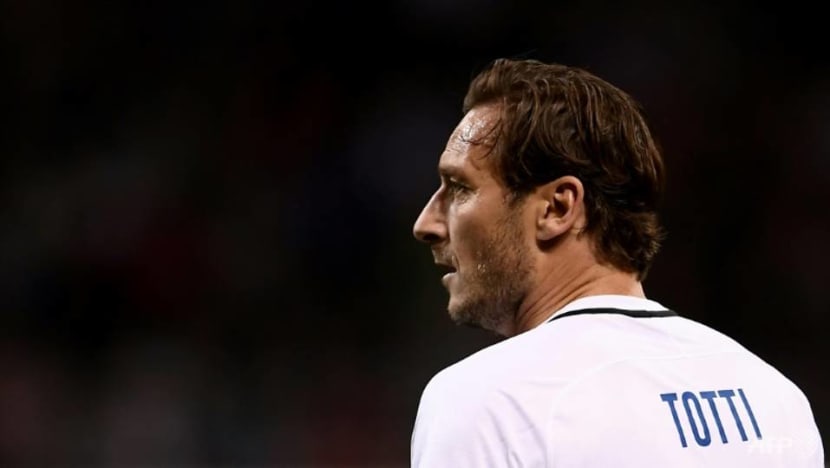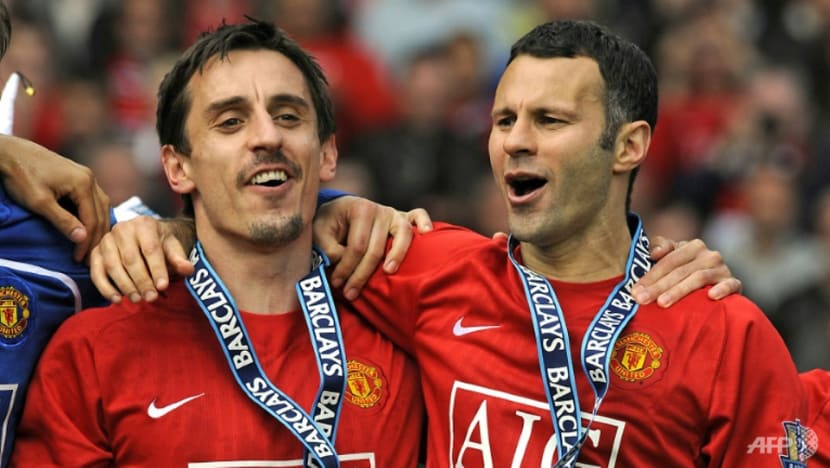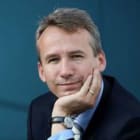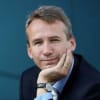commentary Commentary
Commentary: People ready to retire later but preparing older workers will require more than reskilling
Advanced economies like Singapore can reap a longevity dividend if it can move beyond reskilling efforts, say two experts.

A security guard in Singapore. (Photo: Gaya Chandramohan/CNA)
SINGAPORE: Perhaps you’ve noticed that top athletes are getting older.
We are seeing superstars in soccer, professional cycling, baseball, rugby and other sports performing at the highest level into their late 30s and even 40s.
Sports personalities like Francesco Totti (retired at 40) and Ryan Giggs (retired at 41) Tom Brady (41, NFL), Sylvain Chavanel (39, Tour de France cyclist), Jaromir Jagr (46, NHL ice hockey), and Tim Duncan (retired at 42, NBA) excelled for roughly a decade longer than used to be the case.
THE LONGEVITY DIVIDEND
Why is this happening? They focus on more than just athletic skills. They eat better. They take care of themselves. They rehabilitate their bodies, get excellent medical care, and prepare mentally.
As a result, they are able to reap extraordinary benefits for longer. Due to their ability and experience, older athletes provide tremendous value to their teams and huge joy to fans.
They prove that outdated ideas about age and performance no longer hold true. We, too, can excel for longer and it’s called the longevity dividend.

Not everyone can be compared to top athletes, but there are undeniable breakthroughs in neuroscience, nutrition and adult development that enable healthy adults to extend the age-range for impactful contribution.
However, organisations rarely utilise the science-based insights — and toss-away an amazing competitive advantage.
The resource and opportunity that older workers represent is being overlooked at a time when our workforce is shrinking.
READ: Growing old is not a slow march toward obscurity, a commentary
LOOK BEYOND RESKILLING
By 2030, Singapore may see a talent deficit exceeding 1 million positions according to consultancy firm Korn Ferry, with a total unrealised output of S$106.8 billion.
Add to that concerns about people living a 100-year life, cost of healthcare, and insufficient retirement savings. The challenges associated with living longer are substantial.
Singapore’s response to its ageing workforce has revolved largely around skills development. Reskilling programmes teach marketable skills to older workers. These efforts are critical at a time when an ageing workforce must also confront technology and automation that displaces workers.
Reskilling, however, is necessary but insufficient to support an ageing workforce. While we are upgrading skills, life’s natural process of cognitive decline is already underway. Starting in our 40s, research shows that people naturally experience a decline in reasoning, memory, spatial visualisation and processing speed.
The implication for Singapore is that we are asking an ageing workforce to use new skills without first addressing cognitive decline.
READ: Matching older workers to jobs the key manpower challenge for Singapore,a commentary

UNLOCKING NEW MINDSETS
Fortunately, cognitive neuroscience reveals how to help executives and leaders to get in shape mentally, delay natural ageing and even enhance cognitive performance of the body and mind.
Studies conducted at research institutions including the Centre for BrainHealth (CBH) at the University of Texas at Dallas demonstrates that cognitive training over a few months in healthy older adults can enhance the brain’s executive functions, improve innovative cognition and produce faster brain processing speeds.
Cognitive performance in older adults can be enhanced. Furthermore, science demonstrates that we develop a unique mindset and capabilities that become available only as we age.
In the later stages of adult development, exemplified by figures like Nelson Mandela, Warren Buffett, Ray Dalio, Narendra Modi or Angela Merkel, older and more experienced leaders bring a more mature mindset capable of operating at a higher plane of complexity.
Leadership researcher Keith Eigel studied executives at this highest level of adult development and found that their mature mindset correlates positively with business effectiveness.
Cognitive development programmes complement and support reskilling by enhancing the mental capabilities these newly-learned skills depend upon. A careful individual repositioning can further enhance an improved mental agility and a mature leadership strategy.
Again, think of it in terms of the sports metaphor. Why do older star athletes often score the most important goals and points in the game? Certainly not because they are faster or more aggressive than anyone else.
They score because they are smarter. They can read the game better. They know their assets and weaknesses.

While on the pitch, they can at that very moment imagine themselves as sitting in the 35th row of the arena where they have a perfect vantage point.
Investing in an ageing workforce can deliver these same types of benefits to organisations.
RESPOSITIONING ORGANISATIONS
That is what the Longevity Dividend is about in a nutshell. Organisational leaders who develop next-step cognitive abilities will know where the ball will be in a couple of moments and they will be there, too, waiting for the opportunity.
The repositioning is everything. Sometimes it may mean delegating more, pushing the workload forcefully downwards while positioning themselves more as a coach and mentor. At other times it means facilitating the talent of others at a decisive, value-creating moment.
The individual repositioning would not be enough without important changes in culture and organisation. We need to help different generations work together and the early research on multi-generational teams is promising.
Compared to more generationally homogenous teams, early research shows that the age-diverse teams deliver better decisions.
Such benefits are only achieved if all employees dispatch with the ageism and recognise the different cognitive resources that everyone brings.
Only then can we fulfil the promise of the longevity dividend and fully realise the emerging wisdom that today’s 72 is yesterday’s 58.
Dr Michael Netzley and Dr Tomas Klvana are founding partners of Extend My Runway, a consultancy start-up that focuses on extending successful careers through applied neuroscience.

















